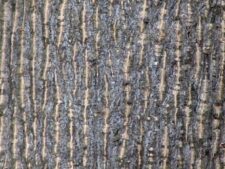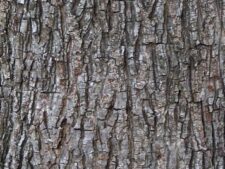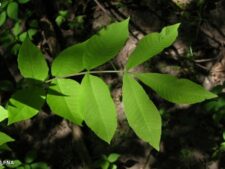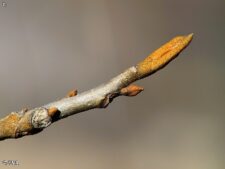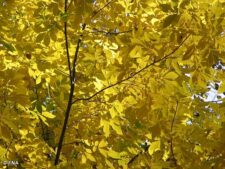
This medium-sized native tree has a smooth bark with vertical “stretch marks” on young trees and branches (B). Mature trees have a furrowed bark (C). Male and female flowers are found on the same tree, but they are seldom visible from the ground. Its solitary or paired fruit is a pointed husk with four ridges (A). It splits along those ridges when ripe to yield a bitter nut. The compound leaves, 9-12 inches long, have 7 or 9 lance-shaped leaflets (D). They turn bright yellow in the fall (F). The distinctive winter buds are bright yellow and lack scales (E). In comparison, Shagbark Hickory (Carya ovata), our other hickory, has large brown winter buds, shaggy bark on mature trees, and larger leaves, usually with 5 broad leaflets.
Grows mostly in upland woods, especially hollows and ravines, flowering in April and May. In Fontenelle Forest, common in Child’s Hollow. At Neale Woods, uncommon in Raccoon Hollow.
The content of NatureSearch is provided by dedicated volunteer Naturalists of Fontenelle Forest who strive to provide the most accurate information available. Contributors of the images retain their copyrights. The point of contact for this page is: Roland Barth.

